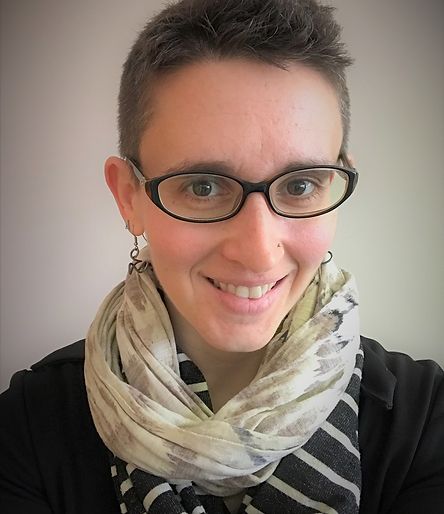Welcome to our newest blog series, “Five Questions With…” In this series, we will highlight the unsung heroes that make healthcare work. From guest services to the phlebotomist, the pet therapy volunteer, and the environmental services workers. These individuals enhance our experiences when we are getting care and highlight human connection and support. Thank you for all you do!
Today, we feature Jae. Jae has been a Child Bereavement Coordinator at Penn Medicine for over five years.
Tell us more about what you do to support patients.

As a child bereavement counselor, I work with families of hospice patients in their homes, prior to and after the death of a loved one. I also work with children referred to us from the community, oftentimes as a result of more sudden and/or traumatic losses. I consider my work to be centered around the child but impacting the entire family unit, and utilize music therapy, art activities, and approach from a relational, strengths-based, and anti-oppressive lens.
What is the most challenging part of your job?
I have a very large caseload and have to end with every client at 13 months, sometimes before they are actually ready to move on from the support. Therefore, I have rolling terminations, often with clients with whom a strong relationship has been formed. And, currently, finding additional resources for kids has been a significant challenge as there are waitlists everywhere!
What is the thing you love the most about your job?
I love the privilege of bearing witness to young people and their families in the midst of something so devastating and vulnerable. While it’s very sad and difficult, young folks have a lot to teach adults about holding grief, love, sadness, and joy all at the same time. I also love serving people in their homes, as it gives me a better understanding of their context and feels more personal.
If someone was applying for a similar position, what would you tell them about the work?
BE HUMBLE. Everyone dies and everyone grieves, so we serve everyone. It is important never to make assumptions or have any beliefs around knowing more about someone than they know about themselves. It is important to always be aware of the privileges and identity markers that you bring into the space and the impact of that on the families you serve. Trust must be earned and is never guaranteed.
What is a job accomplishment that you are proud of?
Recently I created and am facilitating a grief group for LGBTQ+ adults. The group filled quickly and seems to be meeting a community need that isn’t met widely enough. It has been an incredibly poignant and rich experience thus far.
Do you want to nominate a staff member, volunteer, co-worker, or friend for us to feature in “Five Questions With…” Go to oncolink.org/feedback and let us know!